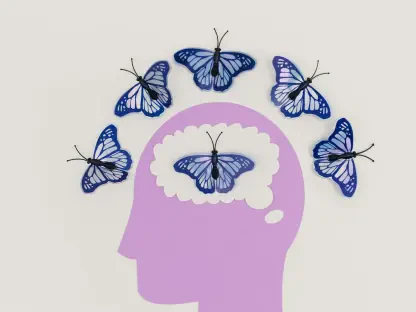Advancements in healthcare technology face a notable challenge: the unyielding complexity of user interfaces, often burdening clinicians with extensive, unfocused tasks. Recent statistics reveal that physicians spend nearly double the time on paperwork compared to patient interaction. This inefficiency in healthcare practices has stirred innovation, leading to a paradigm shift toward AI agentification. The transformative technology promises to streamline tasks, enabling healthcare providers to focus on patient care rather than administrative overload. By examining its onset and development, one can gain insight into how AI agentification is overcoming existing challenges, offering a glimpse into the future of healthcare technology.
An Unobtrusive Partner
AI agentification emerges as a solution to the demanding interface issues plaguing healthcare software. Instead of rigid, linear workflows, AI agents provide dynamic support, autonomously managing tasks with minimal input from healthcare providers. These intelligent systems utilize adaptive learning models to understand user behavior, adjusting processes to improve healthcare delivery. For clinicians, this means less time navigating complex interfaces and more time fostering patient relationships. AI agentification exemplifies a profound shift in healthcare technology, transforming Electronic Health Records (EHRs) from data-heavy systems into insight-rich platforms that bolster clinical efficiency.
Seamless Integration Across Healthcare
Incorporating AI agentification into clinical workflows significantly enhances interaction with technology. Unlike traditional software, AI agents are designed to accommodate diverse clinical practices, ensuring fluidity and flexibility. They perform autonomously, documenting activities either in real-time or after encounters, seamlessly adapting to individual clinician needs. This empowerment supports a person-centered approach, diminishing the intrusive nature of conventional systems. Voice-driven interactions and automated documentation allow providers to engage with patients more intimately, prioritizing human connection over tiresome administrative tasks.
Progress and Innovation
Recent breakthroughs in AI have spurred a surge in agentification, unveiling innovative integrations and industry trends that redefine healthcare technology. Cutting-edge natural language processing capabilities enable these AI systems to analyze vast datasets, offering predictive insights that enhance patient outcomes. Industry adoption continues to grow, with healthcare organizations swiftly integrating AI solutions to improve efficiency and workflow. This progression signals a transformative era, where technology optimally aligns with clinical objectives, elevating patient care above technological constraints.
Real-World Successes
AI agentification is not merely a concept but an operational reality across various healthcare sectors. Considerable strides have been made in medical practices, with companies like NextGen Healthcare deploying AI-driven platforms to improve efficiency. These implementations have resulted in clinicians reclaiming valuable time, reviving their passion for patient care. AI’s role in automating billing and documentation processes substantiates these claims, as providers report renewed satisfaction in their profession. The success stories illustrate AI’s potential to enhance practice management systems beyond traditional capabilities.
Challenges and Future Prospects
Despite the incredible promise AI agentification holds for healthcare, it faces numerous challenges that require attention. Technical concerns regarding data security and privacy, as well as regulatory hurdles, demand comprehensive solutions. Navigating these issues is crucial to ensure seamless integration within healthcare systems. However, ongoing development efforts are tackling these barriers, paving the way for widespread adoption. As AI technology continues evolving, healthcare organizations must adapt, balancing innovation with strategic evaluations to guarantee successful implementations on multiple levels.
Future Considerations
The future of AI agentification could revolutionize healthcare practices, offering breakthroughs that reshape technological experiences. Predictions point toward further enhancements in AI capabilities, fostering deeper integration within healthcare processes. These advancements promise to drastically reduce manual input while amplifying insight-driven decision-making. In the next few years, AI agentification could not only transform the operational landscape but reinstate the human dimension in medicine, allowing empathy and connection to flourish in clinical settings. As these technologies evolve, healthcare systems must remain vigilant, ensuring AI implementations align with patient care objectives.
AI agentification serves as a pivotal force redefining healthcare delivery, diminishing administrative barriers and empowering providers. This technology’s evolution and integration mark the dawn of a more intuitive, responsive healthcare future. By embracing AI agentification, healthcare systems position themselves to enhance patient experiences profoundly, paving the way for an era where technology truly complements humanity’s healing art.









